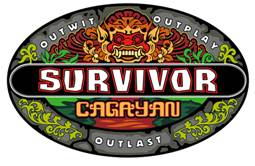 Last week The Wall Street Journal’s Sue Shellenbarger wrote an article on “When the Boss Works Long Hours, Must We All?” It’s an interesting, well-written piece, as all Ms. Shellenbarger’s work in @WSJ is, but I think it misses one important point. She assumes that all those managers putting in 14-hour days are normal folks who are actually working hard because they are dedicated and want to do a good job. This is what I call the Normality Bias.
Last week The Wall Street Journal’s Sue Shellenbarger wrote an article on “When the Boss Works Long Hours, Must We All?” It’s an interesting, well-written piece, as all Ms. Shellenbarger’s work in @WSJ is, but I think it misses one important point. She assumes that all those managers putting in 14-hour days are normal folks who are actually working hard because they are dedicated and want to do a good job. This is what I call the Normality Bias.
It’s a worthy sentiment but, in my experience, a lot of managers work long hours—and may pull their staffs into doing the same thing—for far less admirable reasons. The Normality Bias makes us blind to people who are not normal when we should be asking “Are we people or machines?” Take these four types, for example:
The ADD Boss: Having had more than one of this type, I’m familiar with the syndrome. Procrastination is a part of Attention Deficit Disorder and it means that these bosses put off work until the last minute when they could have done it much earlier—and probably done it better. Rushing to get something completed by a fast-approaching deadline focuses their attention, however, and makes them feel both stimulated and productive. This may work well for them but they often drag their staffs into the last-minute rush, too.
Staffers who would have been happy to put in extra hours on the project some days or even weeks ahead of the deadline are now roped into a stress-filled race created unnecessarily by the boss. He/she either thinks they also like the stimulation of that crunch or doesn’t care how they feel about it. I personally find that kind of stress distracting and counter-productive. I don’t do my best work when I’m anxious and worried so, when I was saddled with a boss of this type, I came in to work every day with the goal of trying to stay two steps ahead of him.
The Big Ego Boss: When I worked at Wang Laboratories, the joke around the executive offices in Tower One was simple: On Friday night, no problem was so small or insignificant that it didn’t require the presence of at least three vice presidents to solve it.
Confused? Look at it from their point of view. In the office—especially if that office was in The Penthouse atop Tower One—they were Big Shots. They had their enormous offices, their perks, their admins to attend to their needs, their subordinates stroking their egos, and a wonderful inflated sense of their own importance. Once they left they were just another commuter stuck in traffic. Once outside they were back in the world of, “Honey please pick up a gallon of milk on the way home,” “The dog needs to go out,” and “Dad, I need help with my science project.”
The best way around this one is to make sure you schedule important meetings for the morning and then beat it out the door before they can rope you into an hour of wasted time that eats into your weekend but serves no real purpose.
The Philandering Boss: Sometimes the boss wants to stay late to flirt, or more with another co-worker. This type actually wants everyone to leave so they can get it on in one office or another. A staffer who stays late to show dedication might actually end up seeing something embarrassing that jeopardizes his or her job. It only takes one such occurrence (trust me) for the message to spread and the staffers to bolt.
The Decompressing Boss: For whatever reason, he’s had a long hard week and now it’s time to vent some steam before heading home. In the high tech, world this is known as Show Time. A group of people, both bosses and staff, gathers in an office to talk about things of no real importance. Scotch or beer may be involved. Bosses wax eloquent and staffers jostle to get face time that will help them advance.
If one does this voluntarily, fine. But if you’re pulled into Show Time without consent, you may find yourself involved in discussions of politics that don’t match your own, March Madness, or the right side of Net Neutrality. There’s an advantage to participating in Show Time because it can give you chance to be seen and even be accepted for an hour as “one of the boys.” If you enjoy it, fine. If not, stay away from the office door before Show Time starts.
Human Beings Are Not Computers
When did working long, crazy hours become the norm? I think it was back in the early days of the computer revolution. After all, computers can work 24 x 7, so why can’t people? Computers can multi-task, handling hundreds of different projects simultaneously, so why can’t people? Computers don’t get tired. They can respond and get something done whether it’s 2:00 p.m. or 2:00 a.m., so why can’t people? This tendency increased as computing power became more personal and more portable,
But, as David Hunt points out in “The Cost of Crazybusy,” people are not machines. He gives five good reasons why running fast and hot is not necessarily the best thing to do. The question for bosses—and employers—is why the boss is working so hard, so late, or so many hours. It may be for one of the reasons above, in which case attention should be paid. Even if the boss is a normal, hard-working employee, there’s still an issue. As Mr. Hunt says in his blog post, “The harder companies squeeze to wring more productivity out of their people, the more resentment that squeezing will breed. Is this really the emotional state employers want their people in?” Let’s not forget the physical state, either, as stress can generate a range of illnesses.
 Every employee has to decide what they can or can’t accept.
Every employee has to decide what they can or can’t accept.
- Is time with your family more important than the career boost you may get from Show Time?
- Do daycare hours restrict your time in the office?
- Can you improve your commute by coming in earlier or later?
- Do you feel threatened if you don’t immediately answer an email sent at 10:30 p.m.?
Just remember, that dedication might not be the reason why your boss works late. If he has a problem, try not to make it your problem. And if you can’t get away from her, your best strategy might be to, as they say on Survivor, outwit, outplay or outlast the boss.


